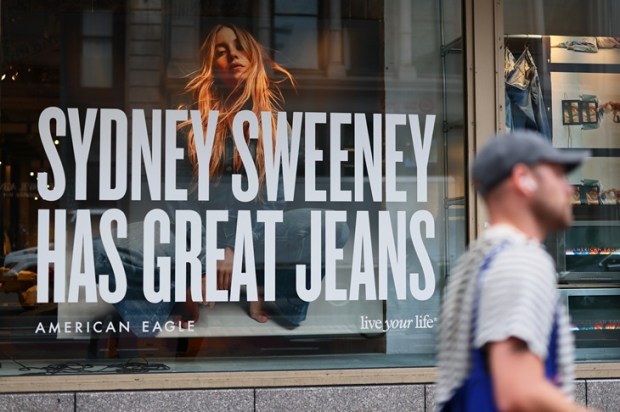Like kicking water up a hill or punching smoke, writing about the culture wars is often tedious and tiring. But sometimes a story appears that, at first glance, seems trivial and benign, yet upon closer inspection it fills you with joy. It is one of those little fist-clenching, quietly spoken yes moments.
What’s unique about the culture war is how quickly it sends people to both sides of an ideological divide: like opposite poles of a magnet, both sides rush to one end or the other. As a general rule, when the left dislikes something, it usually means that the right likes it. In that spirit, when The Guardian gave the new Super Mario Bros. movie a one-star review, calling it a ‘lazy animated mess’, I knew I had to find out more. Critics may hate it, but the movie takes a Mario Kart-style victory lap after breaking box office records.
Based on Nintendo’s iconic video game, the film grossed $15 million across Australia over the Easter weekend. Since debuting in UK cinemas last Wednesday, the tale of two Italian plumbers from Brooklyn has outperformed the box office, doubling the revenue of its closest rival, Dungeons & Dragons. The film has been a worldwide success, grossing over $377 million at the box office. It surpassed Frozen 2 to become the world’s largest animated film opening of all time.
All of this was achieved despite the inexcusable crime of having the two main characters, Mario and Luigi, voiced by Chris Pratt and Charlie Day, who do not exactly meet the usual Woke identity dogma. Charlie Day, star of the superb sitcom It’s Always Sunny In Philadelphia, is an incredible comic actor. Seriously, if you haven’t seen this show, you’re missing out… Anyway, the decision to hire two ordinary men appears to have upset some people, especially John Leguizamo. The actor, who played Luigi in the terrible 1993 live-action version of Mario, has decided to launch a boycott.
When asked if he would watch the movie, Leguizamo told TMZ, ‘No, I will not.’ The 62-year-old Colombian-born actor criticised the film for its lack of diversity and representation, going on to tell the celebrity news site, ‘They could’ve included a Latin character. Like, I was groundbreaking and then they stopped the groundbreaking.’
This is how far we’ve fallen as a species. The cultural bar has been lowered to such a level that a crab couldn’t limbo under it. Within the unspoken rules of the new cultural environment in Hollywood, two male actors can no longer voice two video game characters without their ethnicity being commented on. Failing to take into account the racial profile of a film’s cast infuriates the progressive class. It does not seem to be enough anymore to say that maybe these actors were simply the right people for the role. In this case, both actors grew up during the 1980s and 1990s, when the game first appeared on Nintendo’s NES and SNES game consoles.
As I have said before, professional film critics seem to live in a world disconnected from reality. Film review site Rotten Tomatoes has once again highlighted the gap between critics and fans. While the critics have slated the Mario film, the ratings are a whopping 96 per cent from the fans. It’s these people, the fans, who matter. They vote with their wallets. And the market has spoken.
Here is the lesson. If you focus on making good films that are free from progressive dogma, you can achieve commercial success. Who would have thought that?

























